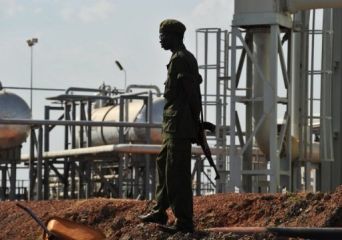Global Witness urges transparency in S. Sudan’s oil sector
April 8, 2013 (JUBA) – As oil production resumes in South Sudan, the campaign group, Global Witness, urges government to implement transparency measures in the sector, as part of the oil legislation passed last year.

Such measures, she stressed, should also include clarification from South Sudan government on recent reports of “secretive” contract allocations.
This week’s resumption of oil operations will test whether the government’s commitment to transparency is genuine, Dana added.
Stephen Dhieu Dau, South Sudan’s Petroleum and Mining minister told journalists on Monday that the new nation has started producing 10,000 barrels per day of oil from Unity state’s Tarjas oil field.
“We resumed normal production in Tarjas oil fields, with up to 10,000 barrels being produced per day,” Dau said.
The minister, while briefing journalists at Juba airport, also said he expects oil production to resume within its Upper Nile oil fields by end of April.
South Sudan shut down its oil production in January last year, following a dispute over transit fees with neighbouring Sudan. Until now, the young nation’s only route to export its crude oil is currently via Sudan’s pipelines and port.
The two countries had spent more than a year and a half negotiating new transit terms when Sudan began confiscating crude oil shipments at the port in late 2011.
Oil revenues accounted for more than 98% of the South Sudan’s national budget.
The resumption of oil production, if managed well, could provide desperately needed development and basic services for South Sudanese citizens, the Global Witness campaigner, said.
“The oil legislation specifically includes the transparency and accountability mechanisms necessary to help make that happen. Now is the time for the government to demonstrate its commitment to openness and public scrutiny,” she added.
The resumption of the oil production will be the first event in the implementation of the economic deal of the cooperation agreement signed in Addis Ababa, Ethiopia between the two regions in September last year.
However, despite a six-year peace deal and almost 20 months passing since the new nation gained independence, South Sudan and its northern neighbour are yet to agree on the status of disputed areas, with large areas of the oil-rich border remaining un-demarcated.
(ST)
